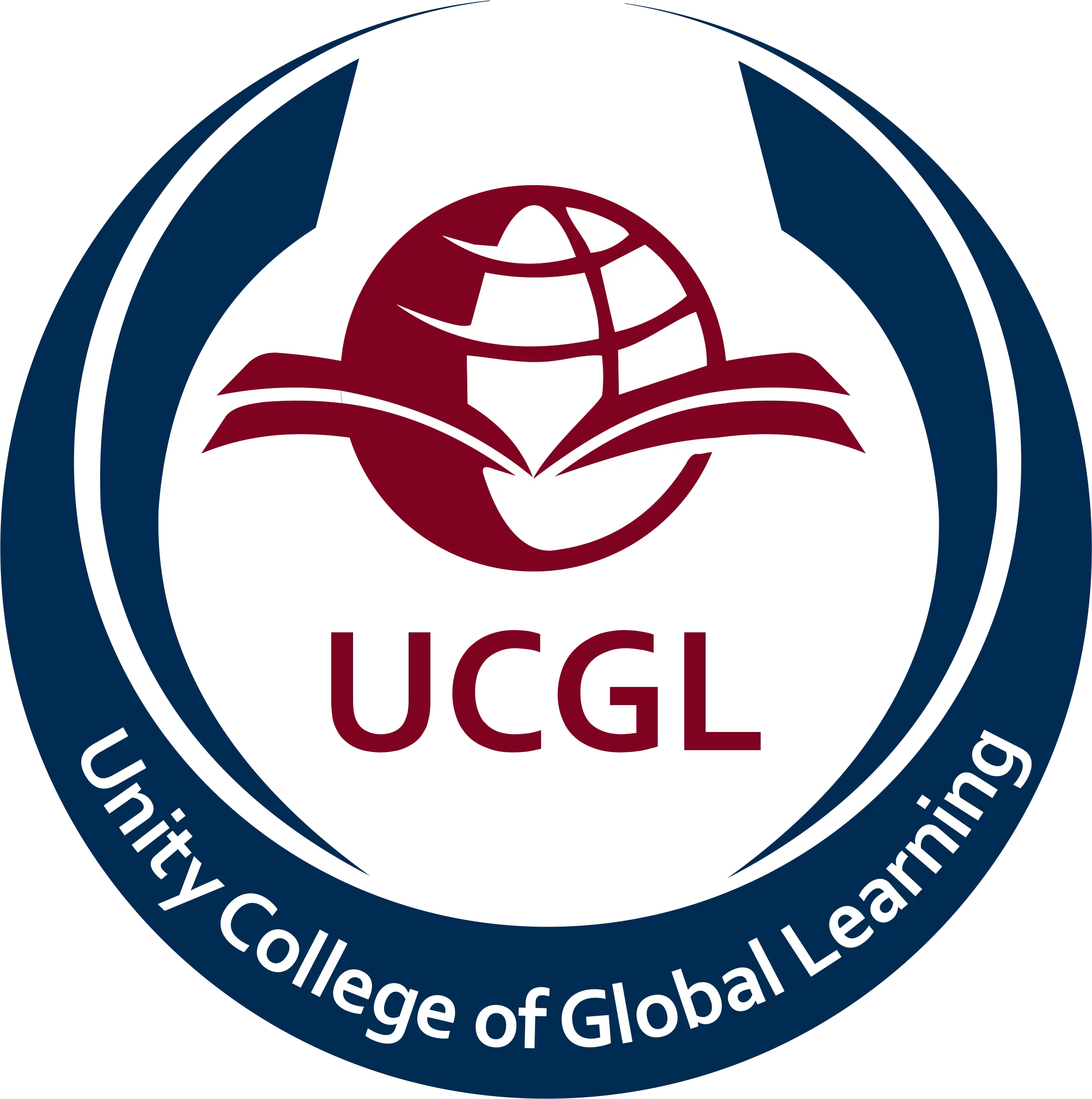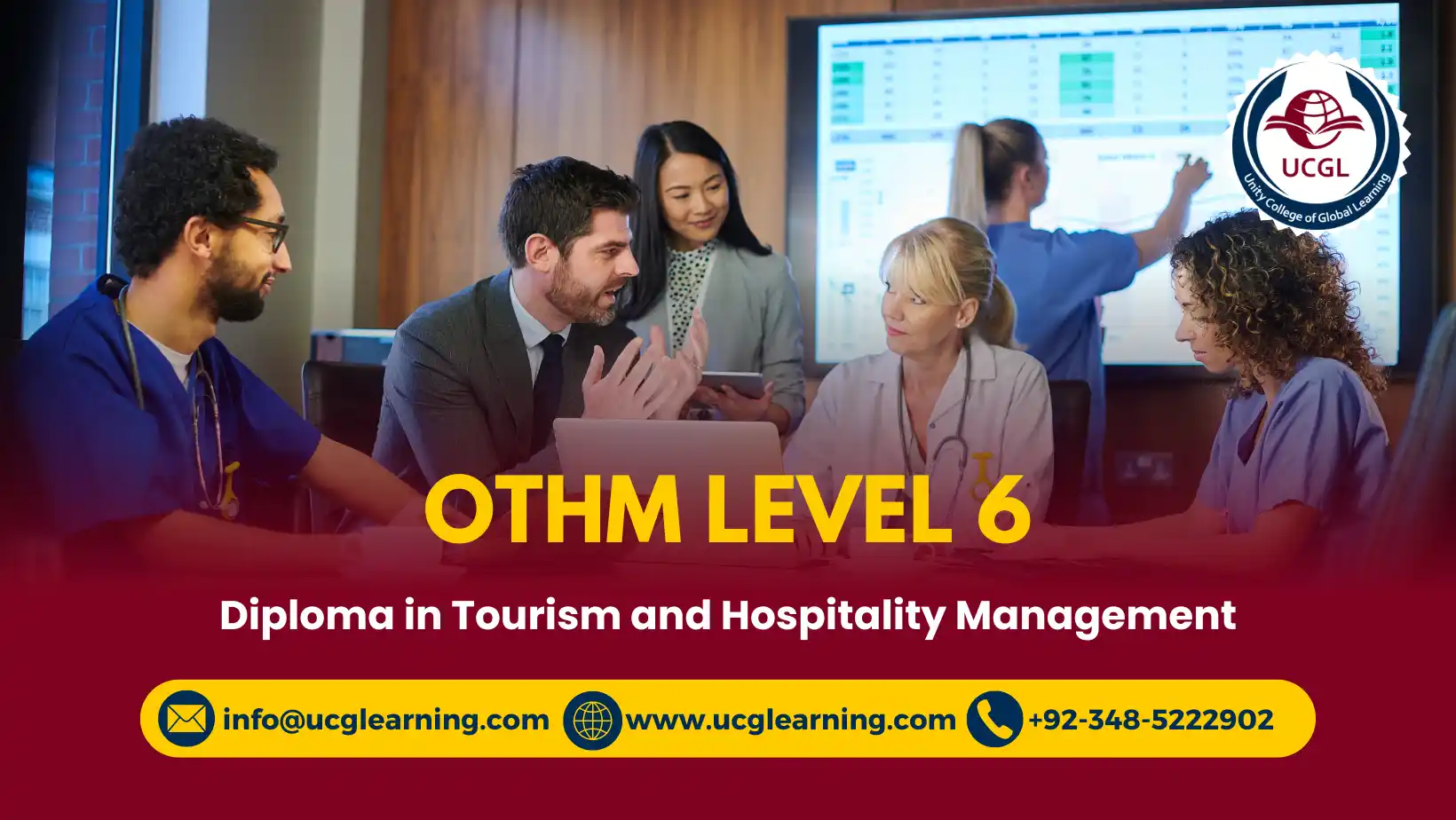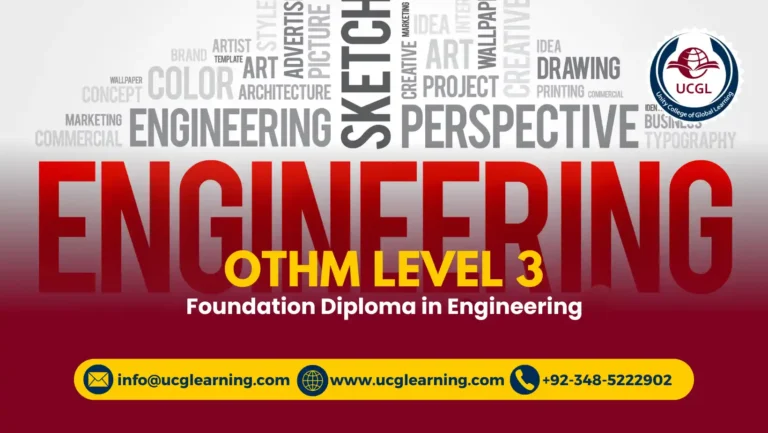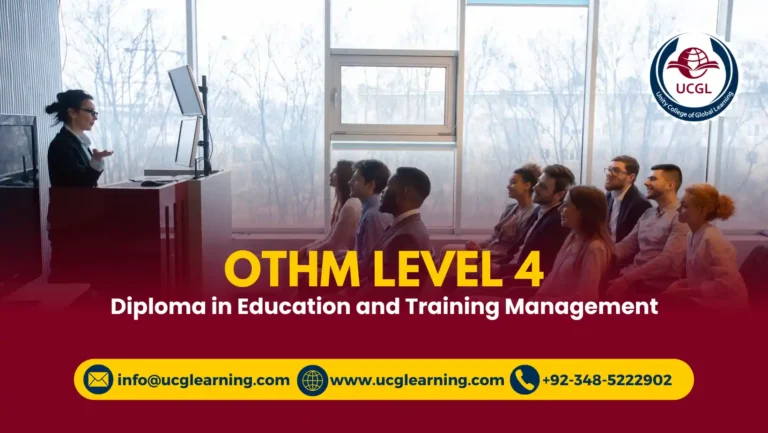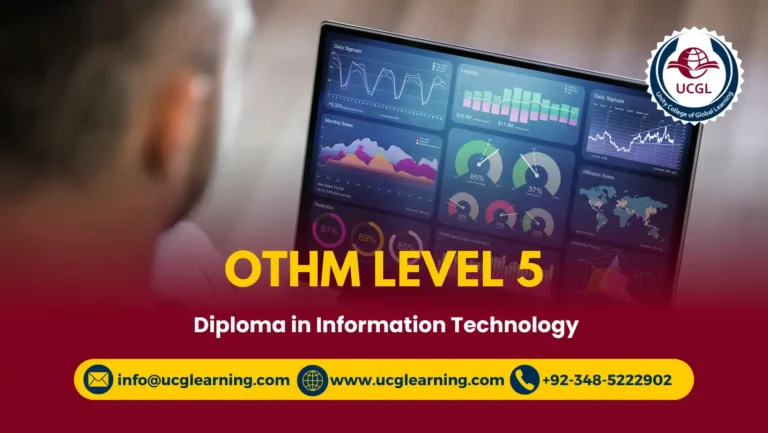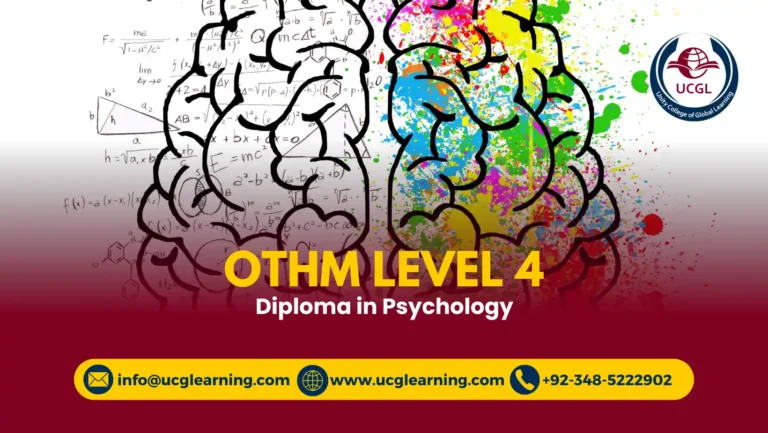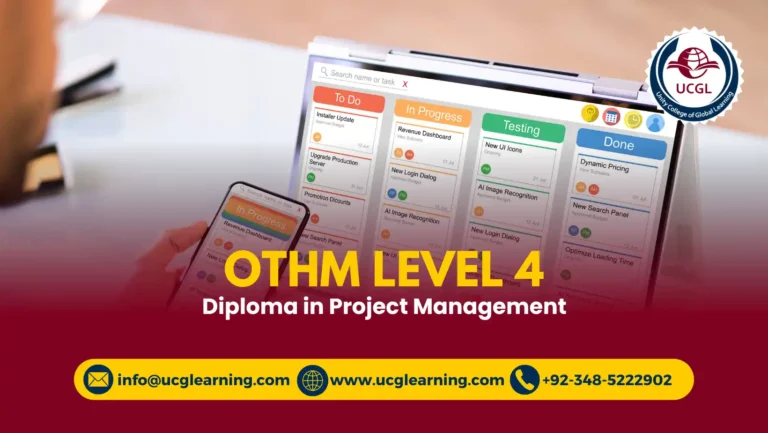OTHM Level 6 Diploma in Tourism and Hospitality Management
The Level 6 Diploma in Tourism and Hospitality Management offers a comprehensive exploration of key aspects within the tourism and hospitality sector. Participants will delve into topics such as hospitality operations management, tourism marketing strategies, sustainable tourism practices, event management, and guest relations. The program emphasizes practical skills development alongside theoretical insights, preparing graduates to meet the evolving demands of the global hospitality market.
Course Introduction
Welcome to the Level 6 Diploma in Tourism and Hospitality Management, a prestigious program designed to equip participants with advanced skills and knowledge necessary for leadership roles within the dynamic tourism and hospitality industry. This diploma prepares individuals to manage operations, enhance guest experiences, and drive business success in diverse hospitality settings worldwide.
Course Benefits
- Industry-Relevant Expertise: Gain insights into current trends, challenges, and best practices in tourism and hospitality management.
- Leadership Skills: Develop strategic thinking, decision-making, and management capabilities essential for leadership roles within hospitality organizations.
- Global Perspective: Understand the cultural, economic, and environmental factors influencing international tourism and hospitality markets.
- Networking Opportunities: Connect with industry professionals, mentors, and peers to build a strong professional network and stay updated on industry developments.
Course Study Units
The Level 6 Diploma in Tourism and Hospitality Management covers a variety of study units, including:
- Strategic Marketing (20 credits)
- Tourism Policy and Planning (20 credits)
- Organisational Behaviour and Performance (20 credits)
- Technology in the Tourism and Hospitality Industry (20 credits)
- Tourism and International Development (20 credits)
- Researching Tourism and Hospitality Management (20 credits)
Learning Outcomes
Strategic Marketing (20 credits)
- Market Analysis: Conduct comprehensive market analysis to identify trends, opportunities, and consumer preferences within the tourism and hospitality industry.
- Marketing Strategy Development: Develop effective marketing strategies and campaigns tailored to target audiences, leveraging digital marketing channels and traditional media.
- Brand Management: Implement brand management techniques to enhance brand equity, customer loyalty, and competitive positioning in the marketplace.
- Marketing ROI: Measure and evaluate marketing performance using key performance indicators (KPIs) to optimize marketing investments and achieve business objectives.
Tourism Policy and Planning (20 credits)
- Policy Analysis: Analyze tourism policies and regulations at local, national, and international levels, understanding their impact on tourism development and sustainability.
- Destination Management: Develop sustainable tourism strategies and destination management plans to preserve cultural heritage, protect natural resources, and enhance visitor experiences.
- Stakeholder Engagement: Collaborate with government agencies, community stakeholders, and tourism organizations to promote responsible tourism practices and achieve consensus on policy initiatives.
- Crisis Management: Implement crisis management protocols and contingency plans to mitigate risks and respond effectively to tourism-related emergencies or disruptions.
Organisational Behaviour and Performance (20 credits)
- Leadership and Motivation: Apply theories of leadership and motivation to enhance employee engagement, productivity, and organizational performance within tourism and hospitality enterprises.
- Team Dynamics: Foster collaborative team environments, leveraging diversity and inclusivity to achieve organizational goals and promote a positive workplace culture.
- Performance Evaluation: Implement performance management systems and processes to assess individual and team performance, provide constructive feedback, and support professional development.
- Change Management: Manage organizational change and transformation initiatives, fostering adaptability and resilience to navigate evolving market dynamics and industry trends.
Technology in the Tourism and Hospitality Industry (20 credits)
- Digital Transformation: Implement digital technologies and innovations to enhance guest experiences, streamline operations, and optimize service delivery in tourism and hospitality settings.
- Revenue Management Systems: Utilize revenue management systems and analytics to optimize pricing strategies, maximize revenue opportunities, and improve profitability.
- Customer Relationship Management (CRM): Implement CRM systems to personalize guest interactions, build customer loyalty, and enhance guest satisfaction through targeted marketing and service offerings.
- Data Security and Privacy: Ensure compliance with data protection regulations and implement cybersecurity measures to safeguard guest information and maintain trust and credibility.
Tourism and International Development (20 credits)
- Global Tourism Trends: Analyze global tourism trends and patterns, understanding their socio-economic impacts on host communities, economies, and cultural landscapes.
- Sustainable Development Goals (SDGs): Align tourism initiatives with sustainable development goals, promoting responsible tourism practices that contribute to environmental conservation and social equity.
- Community Empowerment: Engage with local communities and indigenous groups to promote inclusive tourism development, foster cultural exchange, and generate socio-economic benefits.
- Ethical Tourism Practices: Advocate for ethical tourism practices, respecting cultural diversity, human rights, and local traditions while minimizing negative impacts on host destinations.
Researching Tourism and Hospitality Management (20 credits)
- Research Design: Develop research proposals and design methodologies to investigate key issues and challenges in tourism and hospitality management.
- Data Collection and Analysis: Collect, analyze, and interpret qualitative and quantitative data using appropriate research methods and statistical techniques to generate meaningful insights.
- Research Ethics: Adhere to ethical principles and guidelines in conducting research, ensuring confidentiality, informed consent, and integrity in data handling and reporting.
- Knowledge Dissemination: Present research findings effectively through written reports, presentations, and publications, contributing to academic discourse and informing industry practices.
These learning outcomes equip participants with the knowledge, skills, and competencies necessary to excel in strategic marketing, tourism policy and planning, organizational behavior and performance, technology integration, international tourism development, and research methodologies within the dynamic and evolving field of tourism and hospitality management.
Who is This Course For?
The Level 6 Diploma in Tourism and Hospitality Management is suitable for:
- Hospitality Professionals: Seeking to advance their careers in hotel management, resort management, or tourism operations.
- Tourism Entrepreneurs: Planning to start or expand businesses in tourism-related sectors such as travel agencies, tour operators, or event management companies.
- Graduates: Interested in entering the dynamic field of tourism and hospitality and acquiring specialized knowledge and skills.
- Career Changers: Transitioning into hospitality management from other industries, aiming to leverage transferable skills and pursue new career opportunities.
Future Progression for This Course
Completion of the Level 6 Diploma in Tourism and Hospitality Management opens up several progression pathways, including:
- Master’s Degree: Pursue advanced studies in tourism management, hospitality management, or business administration to specialize further in areas such as luxury hospitality, destination management, or sustainable tourism.
- Professional Certifications: Obtain industry-recognized certifications such as Certified Hospitality Administrator (CHA), Certified Hotel Administrator (CHA), or Certified Hospitality Supervisor (CHS) to enhance career prospects and credibility within the industry.
- Senior Management Roles: Advance to senior positions such as Hotel General Manager, Director of Operations, Tourism Development Manager, or Destination Manager within global hospitality organizations or tourism boards.
- Entrepreneurship: Launch your own hospitality venture or consultancy, leveraging acquired skills and industry insights to innovate and excel in the competitive tourism and hospitality market.
Conclusion
The Level 6 Diploma in Tourism and Hospitality Management offers a transformative learning experience designed to equip participants with the strategic insights, practical skills, and industry knowledge needed to succeed in leadership roles within the vibrant tourism and hospitality sector. Whether you aspire to manage luxury resorts, coordinate international events, or promote sustainable tourism practices, this diploma provides the foundation for a rewarding career in hospitality management. Embrace the opportunities of global tourism and hospitality by enrolling in this comprehensive program and embarking on a fulfilling journey towards professional excellence.
